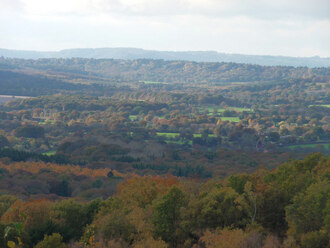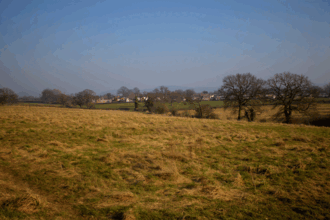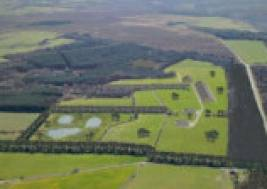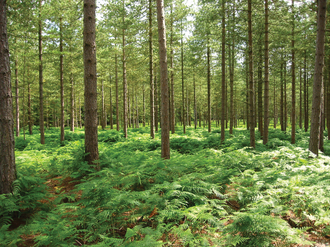-
Stop Fracking in BlackpoolHorizontal hydraulic fracturing, ‘fracking’, is a way of extracting oil and/or gas. Water, sand and toxic chemicals are injected at high pressure into underground rocks to shatter them. This releases the gas/oil which can be collected. But investing in carbon-intensive fossil fuels is a distraction from the need to decarbonise our electricity supply. And it's hazardous. Studies show that fracking pollutes water supplies (with arsenic and lead), causes earthquakes, and spoils local communities. And there are nightmare stories coming form the States. Like in the town of Dimock, PA, residents have reported their water turning so brown that it stains crockery. Their water was later found to contain methane, and a host of toxic chemicals. But it gets worse. "My son had sores up and down his legs from the water." " My daughter... would have to get out the of the shower and lay on the floor." Those are the words from Greg Saunter, a local resident, whose water supply was shut off for his own good. He cannot shower in his own home. Or drink water out of his taps. Fracking has ruined his life. It cannot happen here. We call on the council to preserve the quality of life of it's residents, and reject all planning applications for fracking.191 of 200 SignaturesCreated by Tina Louise Rothery

-
Stop Fracking in West SussexHorizontal hydraulic fracturing, ‘fracking’, is a way of extracting oil and/or gas. Water, sand and toxic chemicals are injected at high pressure into underground rocks to shatter them. This releases the gas/oil which can be collected. But this process is often hazardous. Studies show that fracking can pollute water supplies (with arsenic and lead), cause earthquakes, and spoil local communities. And investing in carbon-intensive fossil fuels is a distraction from the need to decarbonise our electricity supply. We call West Sussex Council to protect the quality of life of its residents and reject all fracking applications.1,201 of 2,000 SignaturesCreated by Dave Birkenhead
-
Give communities power to block fracking projectsEric Pickles recently announced his intention to introduce new planning guidance allowing communities to block windfarms (http://www.guardian.co.uk/environment/damian-carrington-blog/2013/jun/06/wind-farms-shale-gas-fracking-energy). While any move to increase local democracy should be welcomed, it appears the government has no intention of granting similar powers to communities threatened with fracking projects. Fracking – the process of extracting gas from rock such as shale – is highly disruptive to nearby communities, poses a very significant threat to groundwater and human and animal health, is extremely energy-intensive and has huge implications for climate change. Furthermore, even optimistic estimates suggest the UK has only enough shale gas to keep the country going for a few years. Whatever your views on fracking or windfarms, there can be no conceivable justification for allowing communities to block windfarms – which generate clean, infinitely renewable energy far into the future – but not fracking projects. If anything, communities should have greater powers to block fossil fuel projects than renewables, given that we’re edging ever closer to the point at which climate change becomes irreversible and entirely out of our control. Alas, this is another clear example of the present government’s relentless pursuit of gas, and its ambivalence towards renewable energy; the announcement has come just days after the government voted against introducing stringent new targets to decarbonise our electricity supply by 2030. The recent revelation that a third of government ministers have strong links with the fossil fuel industry and the finance sector that bankrolls it (http://www.wdm.org.uk/climate-change/one-third-uk-government-ministers-linked-uk-companies-fuelling-climate-change) may begin to explain their refusal to place any barrier in the way of their dash-for-gas. This is not a petition to stop communities from blocking windfarms; it is a petition calling on the government to recognise the gaping inconsistencies in any planning guidance that allows communities to block windarms – whose impacts are, after all, reversible – but not fracking projects, which, conversely, will leave an appalling legacy for our children and grandchildren of contaminated aquifers and a climate spiraling out of control. By signing the petition you are sending the government a clear message that vested interests cannot be allowed to influence planning policy, especially when so much is at stake. Communities must be given the power to block fracking projects.1,313 of 2,000 SignaturesCreated by Gwen Harrison
-
No Development on Prince's ParadeThe land is a protected piece of open land which allows exceptional vistas of Hythe and Shorncliffe and should not be developed. The current proposals of 150 residential flats and houses on the site will change the character of Hythe forever and will lead to the almost inevitable development of the adjacent golf course to a similar residential density. The land at Princes Parade has been dredged, its been quarried, it’s been land filled, it successfully defended us against Napoleon, the Kaiser and Hitler, it protects us and our Ancient Scheduled Monument from the ravages of the sea and provides a unique habitat for wildlife. The land creates fantastic vistas of the surrounding hills, it is a protected open space, It has a recorded planning history which should make it undevelopable for residential purposes. Definitely worth fighting for! http://saveprincesparade.org/6,896 of 7,000 SignaturesCreated by Jim Martin
-
Achieving an Effective Planning BillThe current wording of the proposal does not recognise that sustainable development includes economic considerations. The proposals could give unintended additional emphasis on one of the three aspects of sustainable development, all of which must be considered when taking decisions on future development. In Clause 6 the proposed requirement for assessing economic advantages and disadvantages of developments would cause great difficulty in practical delivery. It would also put at risk 40 years of case law developed under the existing system and could lead to major delays in planning decisions.279 of 300 Signatures
-
Save South Downs National ParkThe South Downs National Park is in under threat from a massive development by Durand Academy. Durand Academy’s proposed new school for 600 teenagers and 86 staff is the size of three superstores with almost the same population as the nearest villages. Its scale is totally inappropriate for such an important area of outstanding natural beauty. What’s at risk? The development will permanently damage the local environment – the night skies, tranquillity, landscape, flora and fauna - which the SDNPA has a statutory duty to preserve and protect. The development is only 60 metres from a protected Site of Special Scientific Interest. What will happen? Durand Academy’s children and teachers will be bussed in and out from London in convoys of coaches down narrow country lanes which are dangerous for such high levels of traffic. The only two approach roads are single track. The school is not accessible by public transport. All people and goods will have to access the site using their own vehicles. Who else is concerned? The Council for the Protection of Rural England and South Downs Society. The National Trust opposes the development saying that it is ‘contrary to the fundamental National Park purpose to conserve the landscape and scenic beauty of the area.’ The National Trust is ‘particularly concerned about the impact of an average of 40 HGV movements per day for an 86 week build period and the impact on highway safety and the amenity of the National Park.’ What about the future? Durand Academy has not demonstrated that it can afford to sustain the project and has significantly underestimated the costs involved. We do not believe the project is workable without significant additional support from taxpayers and fear that we will end up with an abandoned project in the heart of one of the most beautiful areas of Britain which may be the gateway to further development. What do we want? We fully support the proposal to give inner-city children access to the countryside and the best educational opportunities possible but not in this place, not on this scale and not in this way. The 600 teenagers will be confined to a small site with space for only one football pitch and under strict curfew in a development that will cause irreversible harm to the precious environment they are meant to be able to enjoy. The South Downs National Park needs to be protected for all Britain’s children for all generations to come. It is time to say NO. Durand Academy claims that it has support from local people. We need to demonstrate that there is strong public opposition to the proposal. We don’t have much time. Please sign this petition and circulate it to your friends. For further information please see www.woolbedingwithredford-pc.co.uk/home/st-cuthman-s-development “Costs of running ‘Eton of state sector’ hugely unrealistic – West Sussex villagers object to boarding school for inner-city pupils, saying Government has got its sums wrong.” http://www.independent.co.uk/news/education/education-news/costs-of-running-eton-of-state-sector-hugely-unrealistic-8585245.html The Independent, 24 April 2013: “National Trust is latest to object to inner city academy’s ‘Eton of state sector’ in West Sussex countryside – Body says site is not suitable for a school with more than 600 pupils.” http://www.independent.co.uk/news/education/education-news/national-trust-is-latest-to-object-to-inner-city-academys-eton-of-state-sector-in-west-sussex-countryside-8586432.html?origin=internalSearch The Daily Telegraph, 22 April 2013: “The inner city and the village school – Proposals to site a south London boarding school in a leafy Sussex village have divided opinion.” http://www.telegraph.co.uk/education/secondaryeducation/10010485/The-inner-city-and-the-village-school.html The Daily Telegraph, 22 April 2013: “Auditors investigate race row school – Plans for state-run boarding school at the centre of a Conservative race row face a Whitehall investigation after an intervention from a Labour MP.” http://www.telegraph.co.uk/education/educationnews/10011449/Auditors-investigate-race-row-school.html The Daily Telegraph, 22 April 2013: “Boarding school row: It’s about planning, not race, local insist – Plans to open a new state boarding school for poor children from south London in a rural beauty spot are an “experiment” which will turn the pupils into “political footballs”, a local councilor has claimed.” http://www.telegraph.co.uk/education/secondaryeducation/10009729/Boarding-school-row-Its-about-planning-not-race-locals-insist.html Image of Woolbeding Common © Copyright Chris Gunns and licensed for reuse under Creative Commons Licence.1,588 of 2,000 SignaturesCreated by Alison Nagle
-
Support Dorset & Hampshire's Offshore Wind FarmAs you are probably aware; Navitus Bay Wind Park (1) will be located off the Dorset and Hampshire Coasts, to the west of the Isle of Wight, and also visible from Bournemouth, Poole and Swanage. I understand this development could produce the equivalent energy to power 800,000 homes and reduce carbon emissions by up to 1,125,000 tonnes per annum. This will be a tremendous contribution to our country's energy needs and carbon reductions. It will also help towards our renewable energy target of 15% which in the past few years has been behind plan and behind the progress rates of many other EU nations (2). I am very concerned however that a small group of local activists are using information that has little to no scientific backing to discredit this development and are creating fears about the impact on tourism and jobs in the area. I would urge you to balance any of their views against the report produced by The University of Edinburgh, presented to a Committee of the Scottish Parliament (3) in which there is clear consensus that there has been no measurable economic impact, either positively or negatively, of wind farms on tourism and concludes that “while some strongly held localised and anecdotal opinion exists, the Committee has seen no empirical evidence which demonstrates that the tourism industry in Scotland will be adversely affected by the deployment of renewable energy projects, particularly onshore and offshore wind” I appreciate the turbines will be visible from the coast on a clear day but believe this to be a small and perfectly acceptable compromise for the benefits delivered. Furthermore, I personally confirm that this development will not any way restrict the frequency or manner in which I enjoy the beach and coastal areas in the effected locations. 1. www.navitusbaywindpark.co.uk 2. http://ec.europa.eu/energy/renewables/reports/doc/com_2013_0175_res_en.pdf 3. www.scottish.parliament.uk/S4_EconomyEnergyandTourismCommittee/Reports/eeR-12-07w-r.pdf1,813 of 2,000 SignaturesCreated by Mark Chivers
-
Save our fieldsIn our village, farmland is under threat by many large developers. They obviously find fields an attractive proposition as they can just clear away the trees and hedges and build and this is more profitable than using brownfield sites however this is NOT the answer. Apart from homes, more importantly we need food that is safe to eat. I am sure this problem is an issue all over England since the government decided it was fine to build on green spaces which have previously been protected. Farmland is not just beneficial for providing food, it also helps with absorbing water and giving space to wildlife all of which assist our own health and well being.492 of 500 SignaturesCreated by Yvonne Keeping
-
Support the North York Moors Potash ProjectPotash is a vital source of potassium which is an essential nutrient for plant growth that strengthens cell walls, increases disease resistance and aids the absorption of nitrogen and phosphorous. The York Potash Project will mine polyhalite, a unique source of potassium, magnesium, sulphur and calcium, which can play a key role in balanced fertilisation across the world. With growing world populations it is vital for food security that the UK has a long term supply of this mineral. The York Potash deposit is the largest and highest grade deposit in the world and a new, deep mine with infrastructure that is below ground or hidden behind extensive landscaping can set new benchmarks for sensitive development, whilst creating thousands of jobs and giving a major boost to local and national economies.3,209 of 4,000 SignaturesCreated by Phil Waddingham
-
DON'T LET THE GOVERNMENT SUBSIDISE BURNING TREES FOR ENERGYIt is much more sensible to convert the wood which will be used in biomass energy generation into wood into everyday useful products like building materials and furniture that can last for tens of years rather than going up in smoke in seconds. Because of the payment of carbon credits, traditional users of this resource are not able to compete fairly. Energy generators are able to pay more than double the price paid by UK manufacturers who traditionally use wood to make their products. This has driven up prices by 60% in the last five years and, inevitably, these costs are passed onto all of us. Wood used in manufacturing ensures carbon is locked in for up to 35 years, then recycled and only then the remaining unusable scrap timber is burnt for heat generation instead of going to landfill sites. Whereas burning trees directly from the forests will release tonnes of CO2 into the atmosphere now. Here’s the science: when wood is burnt, C02 is emitted – one tonne of dry wood burnt in a power station will emit 1.8 tonnes of CO2 which goes into the atmosphere. The DECC (Department of Energy and Climate Change) has ignored these emissions; they argue that the carbon released is offset by the carbon absorbed by the growing forest so they assume that wood used as biomass fuel is a ‘carbon-free asset’. This means that they can completely ignore the very real carbon emitted by the smokestacks of power plants, on the assumption that it is offset by the growth of trees. Unfortunately, this dismisses the fact that forests are already growing and already storing carbon. When the trees are harvested and burnt, that carbon storage is reduced and the carbon that was in the tree is released into the atmosphere. So the energy companies are being paid to increase carbon emissions now. And, to add insult to injury, the environmentally disastrous results of burning wood for energy is subsidised by almost a £1billion a year, with households providing the money for this subsidy via their energy bills – that’s you. If only half of the planning permission applications for biomass power stations are approved, they will have the capacity to consume many times the entire annual UK sustainable timber harvest. This subsidy has the potential to result in many negative outcomes: increased C02, loss of British jobs and manufacturing, unnecessary increased prices of wood-based products and also the possibility of endangering already fragile eco-systems across the world. As the price increases for items such as wood panels, builders may consider plywood instead from sources such as China. This raises more environmental issues as timber from these sources may have come from threatened rain forests and illegal logging. Timber from threatened rainforests in Brazil, Indonesia and Papua New Guinea is used in making plywood and it is still imported into the UK with the WWF estimating that around £712million a year is spent on illegal wood. This year the EU has at least passed a new directive to address this problem but it’s likely to be some time before the legislation is rigorously enforced. Meanwhile, more and more vital habitats for threatened species are being destroyed. So the knock-on effect of the government’s subsidies will have repercussions around the world, not only increasing C02 emissions produced by the energy companies but also indirectly adding further danger to the fragile ecosystem of the world’s dwindling rain forests. It can be stopped.861 of 1,000 SignaturesCreated by Anthony Barry
-
Public inquiry into handling of the Trump ResortOnly a full public inquiry can now get to the bottom of this story. We need to know how local and central government dealt with the Trump Organisation, what was offered by whom and when, and we need to establish why planning guidelines and environmental regulations were simply unable to protect our community and the unique environment we live in. Finally, we need to know what changes can be made so the planning system again works like it is supposed to.20,050 of 25,000 SignaturesCreated by David Milne
-
Protect Britain's Nesting BirdsThe RSPB have asked the question, "when was the last time you saw a lapwing tumbling through the sky or a heard of turtle doves gently purring as you walked through fields" The loss of 44 Million Nesting Birds is hard to comprehend and is a direct result on the irresponsible actions of Human Beings! We must act now and care for these beautiful creatures in every way we can!183 of 200 SignaturesCreated by John Brown
Hello! We use cookies to improve your experience by providing insights into how the site is being used. Find out more.












